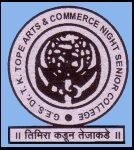शेतकरी संघटना
शरद जोशी या शेतकऱ्यांच्या नेत्याने स्थापन केलेली संघटना
शरद जोशी यांच्याविषयीचा Indian Express मधील लेख :-
Joshi and his vision
Before he took up farmers’ issues, Joshi, an economist by training, worked for the United Nations in Switzerland. After returning to the country, he purchased land near the now-industrial belt of Chakan in Khed taluka of Pune district and became a full-time farmer. In 1979, he led a group of farmers to block the Pune-Nashik highway to press for higher prices for onion. The genesis of the Shetkari Sanghatana lies in this movement, which saw onion growers dumping their produce on the highway to underline their demand.
Joshi believed that unless the problems of Bharat (meaning rural India) were raised forcefully in India (a reference to cities and urban areas), farmers would never receive justice. His agitations were, therefore, invariably staged in the urban areas, and were calculated to impact urban life. Protesters often gathered on highways or railway tracks to press for better prices of sugarcane, or the removal of state monopoly in the procurement of cotton. ? Follow Express Explained on Telegram
Faith in the open market
Since its inception, the Shetkari Sanghatana has been vocal about getting access to the market. Joshi was convinced that the root cause of farmers’ problems lay in their limited access to the market. Markets, Joshi would say, should be open and competitive to allow price realisation for farm produce. He accused governments of intentionally deflating the prices of farm produce to ensure that consumers get them cheap.
Joshi and his hugely popular Sanghatana hit the street to demand removal of zone limits on sugarcane farmers, or the ban on inter-state movement of cotton. Back in 1984, Joshi had declared war on the Maharashtra State Cooperative Cotton Marketing Federation’s monopoly on the procurement of cotton. The federation was then the only buyer of cotton, and farmers had to line up for days together to sell their crop. There were allegations of nepotism and corruption. Joshi and his supporters went to the borders of Maharashtra with their cotton in open violation of government rules. The agitation was successful, and the government was forced to retract the law against the inter-state movement of cotton.
Joshi was the only one among India’s three big farm leaders at the time — the other two were Mahendra Singh Tikait of the Bharatiya Kisan Union and M D Nanjundaswamy of the Karnataka Rajya Raitha Sangha — who supported globalisation and the entry of MNCs in agriculture. When the followers of Tikait and Nanjundaswamy were torching outlets of American fast food giants, Joshi and his supporters took out marches in support of the General Agreement on Tariffs and Trade (GATT). Joshi welcomed India’s joining the World Trade Organisation (WTO) in 1995.
It was his conviction about open markets that led Joshi to oppose the chain of Agricultural Produce Market Committees (APMCs). He felt these cooperative markets were an impediment towards honest price realisation for farmers. While other farm leaders demanded government subsidies, Joshi talked about open markets.https://www.youtube.com/embed/Q52r2D0iEcg?version=3&rel=1&showsearch=0&showinfo=1&iv_load_policy=1&fs=1&hl=en-US&autohide=2&wmode=transparent
संदर्भ
- “Explained: Who are Shetkari Sanghatana, the group backing Govt ….” 23 Dec. 2020, https://indianexpress.com/article/explained/who-are-shetkari-sanghatana-the-group-backing-govt-on-the-farm-laws-7107905/. Accessed 18 Apr. 2021.
![]()

